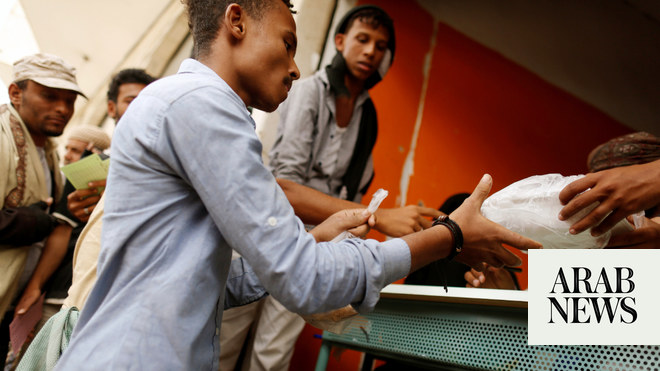BEIRUT: Several independent lawmakers, reformers and opposition parties on Monday called on Lebanon’s interim government to declare a state of emergency in southern Lebanon and hand over control of the country to the military.
They asked parliament to adopt “an action plan to de-escalate the conflict and spare Lebanon a war that the Lebanese people do not want and that official, legitimate Lebanese institutions have decided not to start.”
MP Ashraf Rifi called for immediate action to stop all “unauthorized military actions and their structures” in southern Lebanon.
At a press conference organised by the parliamentarians, Rifi, speaking on behalf of the group, also said the Lebanese Armed Forces should be sent to face any threats.
The MPs called on the government to intensify diplomatic efforts to return to the ceasefire agreement signed in 1949 and fully implement UN Resolution 1701.
Their appeal is prompted by concerns about an escalation of Israel’s military operations in the region against Hezbollah.
Rifi said the ongoing war has cost us “the lives of hundreds of Lebanese, thousands of destroyed housing units, as well as economic and environmental damage caused by daily Israeli attacks.”
He said he and his fellow MPs “strongly oppose Lebanon’s participation in a war with which it has no connection and that (they represent) the majority of Lebanese people.”
Rifi stressed “the need to separate the Lebanese and Palestinian views on what is happening in the Gaza Strip.”
He added: “We strongly condemn Israel’s actions at all levels, including systematic killing, displacement of people and colonization.
“We want to protect our country and not allow it to be drawn into a wider war whose sole purpose is to strengthen Iran’s position in the region, which does not serve the Palestinian cause and destroys Lebanon.
“We will not accept that armed groups, local or foreign, operating on Lebanese territory, impose a logic of unity of arenas, which is rejected by the majority of Lebanese people, because it generates hostility towards Lebanon from the Arab and international community, the latest of which is Cyprus and the EU.”
He also stressed “the importance of implementing UN resolution 1701 in all its aspects by all parties, supporting the Lebanese army and security institutions in controlling the international borders in the south, east and north, and implementing international resolutions 1559, 1680 and other international treaties and related provisions of the Taif Agreement.”
Rifi called on opposition MPs to “convene a parliamentary debate on the ongoing war in the south and its potential escalation and to support the points of the initiative they will present.”
The appeal comes as UNIFIL and other organisations met in Shama to discuss security and support for communities affected by fighting in southern Lebanon.
UNIFIL said the needs of displaced people “are enormous and require a comprehensive approach.”
He added that the meeting was strongly supported by the commander of UNIFIL Sector West, Brigadier General Enrico Fontana, who stressed the importance of “complementarity between humanitarian organizations and UNIFIL in efforts to support both the displaced and the remaining communities in southern Lebanon.”
Fontana spoke about improving basic services such as waste management, water, electricity and education.
He added that there has been a noticeable increase in demand for firefighting equipment, humanitarian aid, medical services and medicines.
The meeting was attended by five UN agencies, a representative of the Humanitarian Forum of Lebanese International NGOs, and 11 international NGOs, including Mouvement Social, Oxfam, the Norwegian Refugee Council, Save the Children and American East Refugee Aid.
Three national NGOs also participated in the event: Imam Sadr Foundation, NUSANED, Najee and the International Committee of the Red Cross.
In another development, a senior Arab League official confirmed that the bloc “no longer classifies Hezbollah as a terrorist organization.”
Hossam Zaki, deputy secretary general of the league, made the announcement in a televised statement broadcast on Saturday evening by Al-Qahira news channel.
Zaki, who visited Lebanese officials last week, said that “previous decisions by the Arab League designated Hezbollah as a terrorist organization, which caused a breakdown in communication. However, the agreement of member states not to use the language allowed communication with the party.”
The Arab League “does not maintain official terrorist lists and its activities do not include classifying entities as terrorist organizations,” Zaki said.
In March 2016, the Arab League designated Hezbollah a terrorist organization and “called on it to stop promoting extremism and sectarianism, interfering in the internal affairs of other countries and supporting terrorism in the region.”
The decision was met with reservations by the governments of Lebanon and Iraq.
Zaki’s visit to Lebanon last week, aimed at stemming escalation in the south of the country, included a meeting with the head of Hezbollah’s parliamentary bloc, Mohammed Raad.
Also on Monday, Israeli planes violated Lebanese airspace over Beirut and its suburbs, as well as over Mount Lebanon.
Three Hezbollah members were also killed in an Israeli attack that targeted a house in the border town of Houla.

